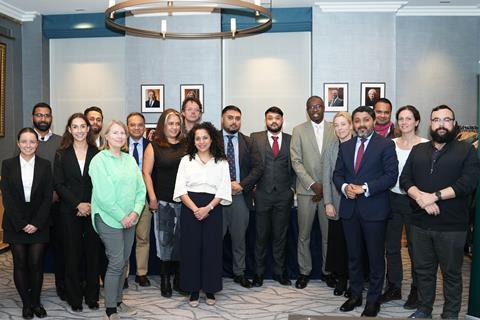
As Indo-Pacific minister Catherine West MP was preparing to meet her counterparts in Bangladesh’s interim government last month, the UK government declared that it backed the south Asian country’s democratic recovery.
An interim government was set up in August after long-serving prime minister Sheikh Hasina resigned and fled the country following civil unrest that escalated and turned deadly.
‘Since the establishment of the interim government in August 2024, the UK has been clear in its support for interim government’s work on accountability and creating a pathway to an inclusive democratic future for Bangladesh,’ the British High Commission Dhaka announced on the day of West's visit.
The UK government is not alone in wanting to help build that pathway.
A few weeks ago, constitutional experts, lawyers, political analysts, members of the Bangladeshi diaspora and international observers gathered in the Bingham Room at Gray’s Inn to exchange ideas, identify areas for reform and come up with actionable recommendations. The roundtable was hosted by the Jagoron Foundation and Gray’s Inn.
I was unable to attend but was helpfully sent a report on what appeared to be an informative and productive discussion.
According to the report, Professor Merris Amos, director of the Human Rights Law Centre at Queen Mary University London, stressed that the protection of human rights must be central to any revised governance framework, and argued for the establishment of a regional human rights court, drawing on the European Court of Human Rights as a potential model for south Asia.
University College London’s Professor Erin Delaney explored the potential for federalism in Bangladesh, where devolved powers could help distribute authority more evenly across regions. Federalism could also improve access to justice by decentralising the judicial system and alleviating the significant backlog of cases currently overwhelming the courts.
Delaney suggested ‘village courts’ could provide local, community-based ways of resolving disputes. It would enhance access to justice, particularly in rural areas where the formal legal system can be inaccessible.
Barrister Zayd Ahmed, chair of the UK Young Criminal Bar Association, highlighted the importance of accountability for human rights violations. The International Criminal Court as an overseas avenue for justice ‘would send a clear signal to the people that there is a mechanism for accountability beyond their national legal system, which may be seen as compromised or politically influenced. This would help rebuild trust in the idea that justice can be served and that those responsible for serious violations will be held to account, regardless of their position or power within the country’, the report says.
The report concludes that constitutional reform in Bangladesh must be a consensus-driven, inclusive process involving all political actors and civil society groups. ‘Only by addressing the diverse needs of its population and committing to the rule of law can Bangladesh achieve long-term democratic stability and prosperity.'
Bangladesh remains at a critical juncture. Help from the UK - not just from the government but legal academics and lawyers - could prove invaluable.




































1 Reader's comment